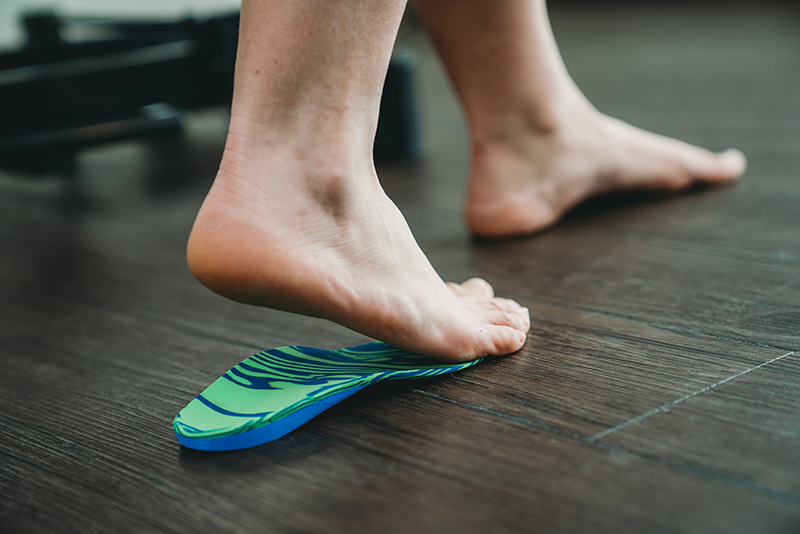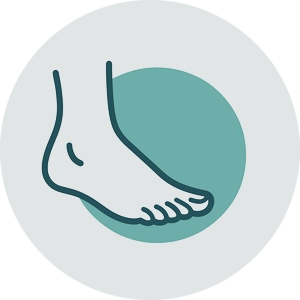I’ve Been Diagnosed with Diabetes: What Do I Do Now?

If you or a loved one has recently been diagnosed with diabetes, you’re likely feeling overwhelmed.
The good news? There are proven steps you can take right now to protect your health and maintain your quality of life. While this guide isn’t all-inclusive, it provides an excellent foundation for managing your diabetes—especially when it comes to protecting your feet.
Building Your Diabetes Care Team
When your doctor diagnoses you with diabetes, they’ll likely refer you to several specialists who will become your healthcare team:

Podiatrist
for comprehensive foot care

Ophthalmologist
for eye health monitoring

Endocrinologist
for blood sugar management

Vascular Specialist
for circulation health
These referrals aren’t optional—they’re essential for achieving optimal health outcomes. Early detection and prevention are always more effective than treating complications after they develop. Specialists, including uur Upperline physicians are here to help, but we can only assist if we see you regularly.
Blood Sugar Control: Your Top Priority
Maintaining stable blood sugar levels is arguably the most critical aspect of diabetes management. Your endocrinologist and nutritionist will work together to help you achieve this goal.
Your endocrinologist will determine the right medications and dosages for your specific needs, while a nutritionist will evaluate your current diet and provide clear guidance on foods to embrace and foods to avoid.
Protecting Your Feet: Daily Prevention Matters
Just as your endocrinologist manages your medications and your nutritionist guides your diet, your podiatrist specializes in preventing foot complications before they start.
The Daily Foot Check

Every diabetic should examine their feet at least once daily. If you can’t see the bottoms of your feet clearly, ask a family member, friend, or caregiver to help. We regularly see patients in our Upperline clinics with wounds or ulcers they didn’t even know existed—and by then, it may be too late to prevent serious complications.
By combining daily foot checks with regular visits to your podiatrist, we can work together to keep your feet healthy.
Specialized Footwear: More Than Just Shoes

Many diabetics don’t realize they may qualify for custom diabetic shoes and insoles, especially if you have:
- Reduced sensation in your feet
- Circulation problems
- Lost toes or part of your foot
Why diabetic shoes matter:
They provide a soft yet stable foundation for walking
Custom insoles support your feet while accommodating pressure points
Diabetic shoes significantly reduce the risk of calluses and ulcerations
Your Upperline podiatrist can assist in helping you obtain your diabetic shoes and insoles. Once you receive your diabetic shoes and insoles, we’ll provide complete instructions on proper break-in procedures to ensure maximum benefit.
Beyond Footwear: Comprehensive Foot Care
Your podiatrist will also educate you on:

Skin care: The best moisturizers to prevent calluses and reduce ulcer risk

Nail care: How to properly manage the nail issues that commonly affect diabetic patients
Prevention in these areas significantly decreases your chances of developing serious foot complications.
When Complications Arise: Advanced Treatment Options
Despite our best preventive efforts, complications can occur. The most serious is a diabetic ulcer—a wound that can extend to the bone, causing severe infection and potentially leading to amputation. This is why daily foot checks are so crucial.
If you notice anything unusual, feel something different, or simply have questions, contact your Upperline podiatrist immediately.
Modern Ulcer Treatment
If ulcers do develop, your Upperline podiatrist will:
1. Determine the underlying cause
2. Create a personalized healing plan
3. Utilize advanced techniques ranging from pressure-relieving devices to bioengineered skin substitutes
These bioengineered grafts don’t require removal of tissue from your own body. Our Upperline podiatrists have extensive experience using these materials as part of customized treatment plans. When properly applied, these grafts can heal ulcers and prevent amputations, helping you maintain your quality of life.
Your First Line of Defense
We hope you now understand the critical importance of specialized podiatric care for diabetic patients. At Upperline, we’re proud to serve as your first line of defense against the potentially devastating effects diabetes can have on your feet and overall well-being.
Take Action Today: If you, a family member, or loved one has been diagnosed with diabetes, don’t wait. Schedule an appointment at any of our Upperline clinics. Your feet—and your future—will thank you for it.
About the Author

H. Austin Hewlett, DPM, FACFAS, QME
Dr. Hewlett is a Fellow of the American College of Foot and Ankle Surgeons and serves as the Sports Medicine Fellowship Director for Upperline Health in Newport Beach, California. He has been a partner at Upperline Health since 2019 and brings decades of clinical and leadership experience to his practice.
Before beginning his formal medical education, Dr. Hewlett spent four years traveling internationally, surfing, and studying viticulture in Australia. He later earned his undergraduate degree from the University of California, San Diego, before completing his Doctor of Podiatric Medicine at Temple University.
Dr. Hewlett has been a member of the Orthopedic Executive Committee at Saint Joseph’s Hospital for more than 15 years and has served the Orange County community with dedication and compassion for over 25 years. His commitment to ongoing education and advanced training allows him to provide the highest level of care, combining clinical excellence with a patient-centered approach.
Dr. Hewlett is available for appointments at the following locations:
Upperline Health – Orange
1038 East Chapman Avenue
Orange, California 92866
Upperline Health – Newport Beach
2131 San Joaquin Hills Road
Newport Beach, California 92660




